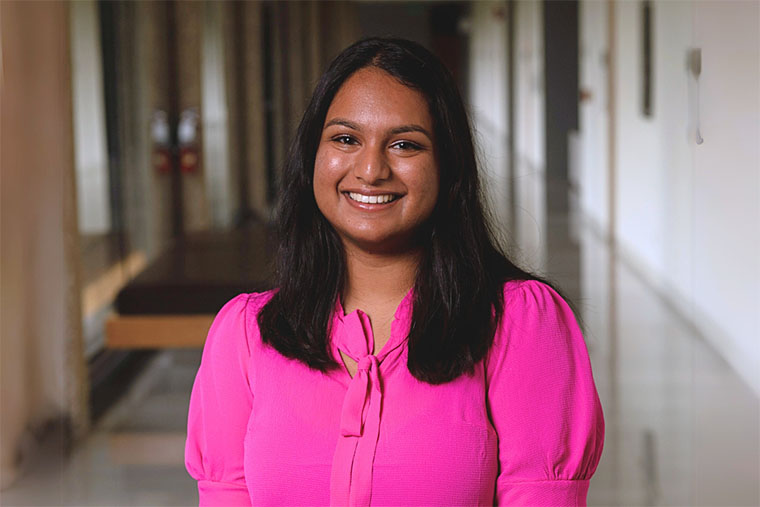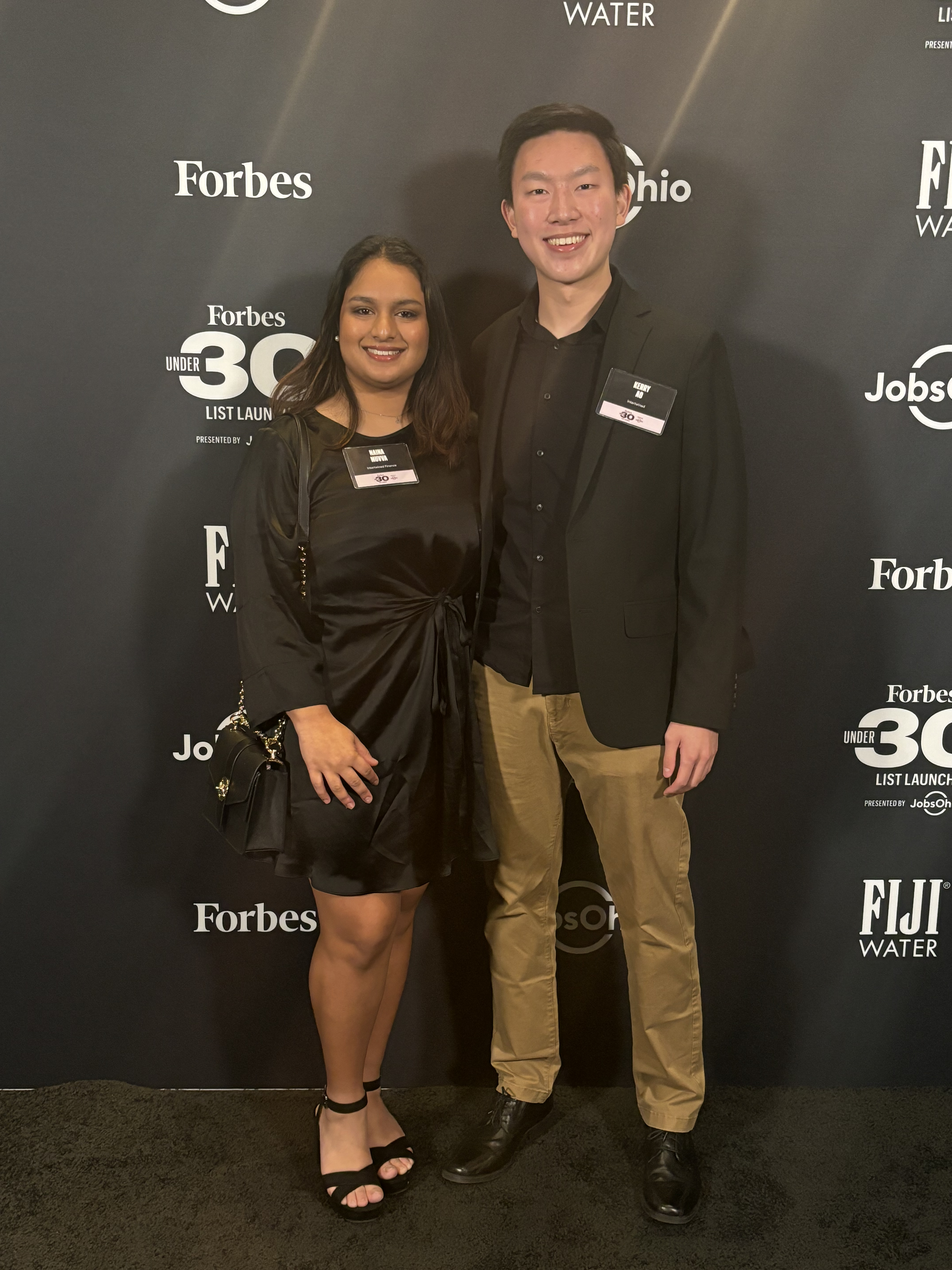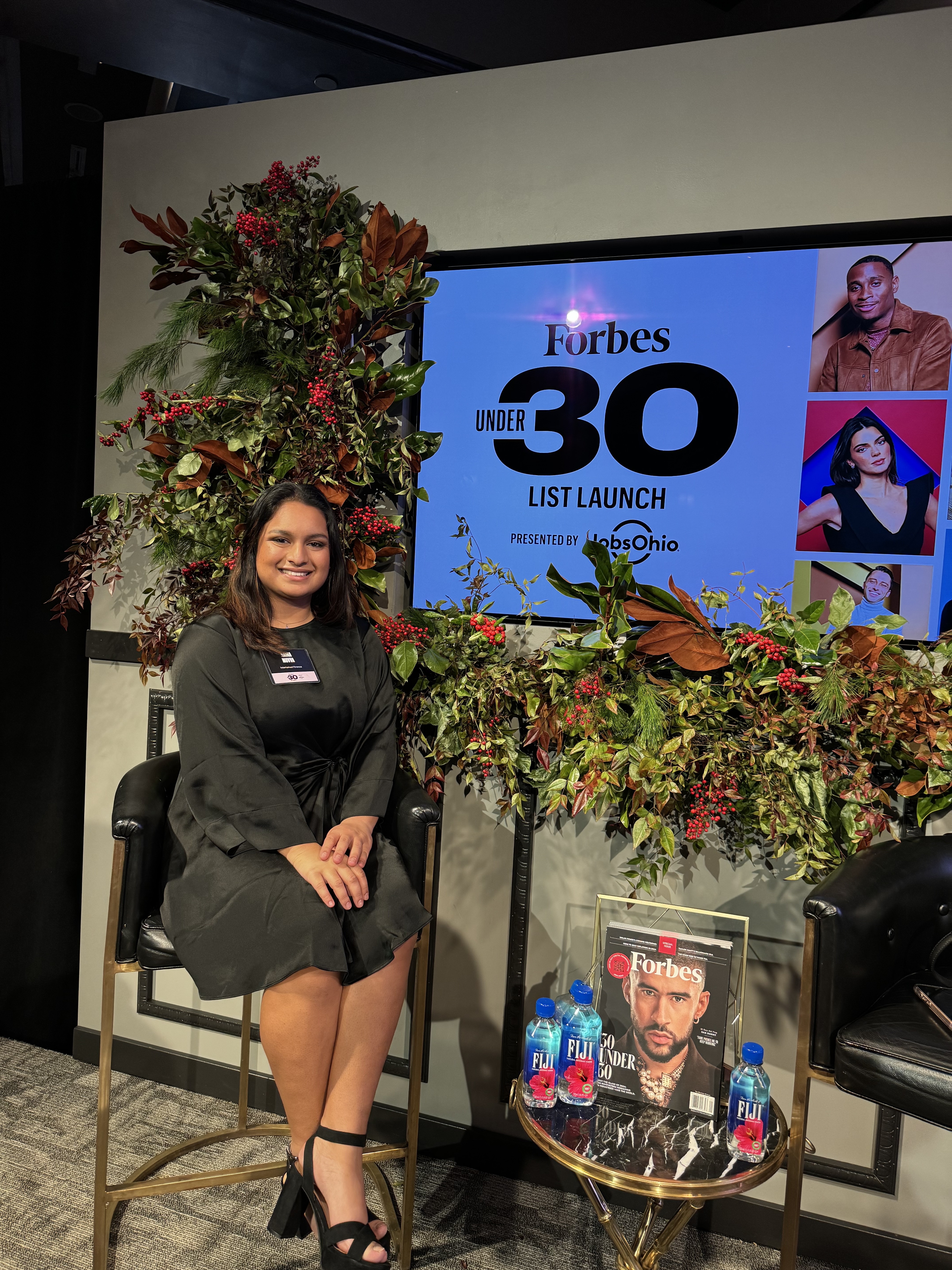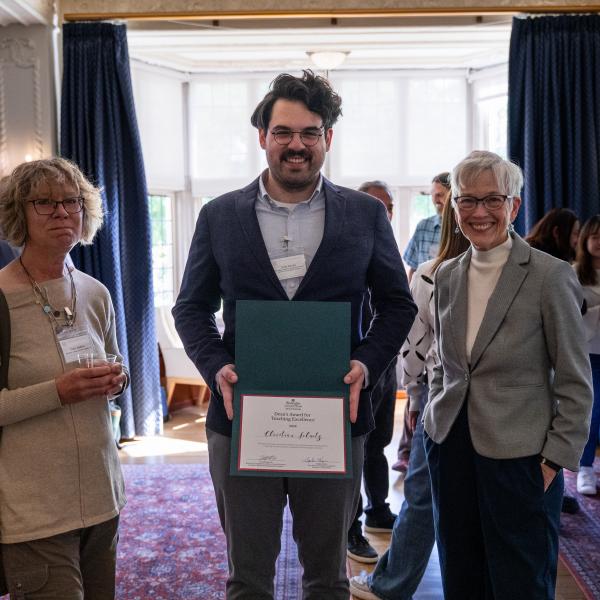First-year student Naina Muvva was named to Forbes’ “30 Under 30” list for her financial literacy software, Intertwined. The Ampersand program “Medicine & Society” was a major reason she chose WashU.

In her junior year of high school, Naina Muvva observed the need for a more engaging approach to teaching financial concepts. To address this, she co-founded Intertwined, an online platform offering users AI-driven lessons on finance. In just two years, Intertwined has reached over 2,800 students nationwide. Now a first-year student majoring in medical anthropology in Arts & Sciences, Muvva is taking advantage of the university’s entrepreneurial resources.
She talked with the Ampersand about launching a business, her path to WashU, and her recent recognition by Forbes.
How did you come up with the idea for Intertwined, and how does it work?

In my junior year of high school, I was an officer in my school’s business club. My co-founder and I noticed that when we would teach stocks, our fellow students listened passively without actively learning. We saw this as a big issue and decided to do something about it.
We designed Intertwined to gamify financial learning. We do this through simulations, including one that allows students to interact with the stock market and see how it functions. We also use open AI sources to create interactive, adaptable questions for students. So, for example, if you get a question wrong, the open AI source will ask the question differently. This ensures students are understanding the material rather than just memorizing questions and moving on.
What does your involvement with Intertwined look like now that you're in college?
We are focusing on marketing and selling the platform, primarily for use in schools. We also want to reach out to nonprofits and other organizations that can help lower the cost to schools, which will make the software more accessible.
How did you become interested in your major, medical anthropology?
I’ve always wanted to do something with health. Medical anthropology looks at the medical field as an institution and examines how it interacts with patients. It’s a unique perspective the pre-med track alone doesn’t offer. I chose WashU because of its exceptional medical anthropology program, which many schools do not offer.
I'm currently enrolled in Medicine & Society, a four-year Ampersand program that dives deep into medical anthropology. The program has just 19 students, so I’ve gotten to know everyone well and it has been great to have this immediate community. We’re all super interested in the field and the small class size enables us to have productive discussions.
How has your time at WashU influenced your work with Intertwined?

The connections I've made through WashU have been huge. I’ve had WashU alumni and parents emailing me about Intertwined. It’s creating another community outside of our headquarters in Indiana, allowing Intertwined to grow even more. I intend to capitalize on the resources WashU provides. The university has a great entrepreneurship program. As I continue my involvement in Intertwined, I know I can find support there.
How did it feel to be named to the Forbes “30 Under 30” list?
The decisions came out in December when I was in my 8 a.m. lab, so I had no clue for a few hours. When I opened the email, it didn’t feel real. Just a few weeks later, at the launch party in New York, I had the chance to meet young people doing work in sustainability, education, and technology. It was so interesting to learn what people are doing with their passions.
Do you have any advice for students who have a business idea and don’t know how to get started?
It’s a long process and you can expect setbacks. We have lost awards, seed funding, and investors, but we’ve also gained a lot of investors. Don’t expect exponential growth in your business because it will be wobbly at first and the state of the market is very unpredictable. You have to have grit and keep working at it. I had to send thousands of cold emails. Ninety-nine percent of people didn’t respond, but the 1% that did helped grow the business.



